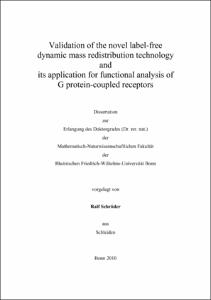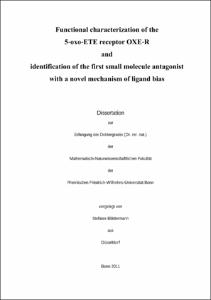Individual(l)tagSingle-day Novels zwischen Augenblicksästhetik und Alltagskritik

Individual(l)tag
Single-day Novels zwischen Augenblicksästhetik und Alltagskritik

| dc.contributor.advisor | Mainberger, Sabine | |
| dc.contributor.author | Scheuss, Anne Christina | |
| dc.date.accessioned | 2024-08-12T07:35:11Z | |
| dc.date.available | 2024-08-12T07:35:11Z | |
| dc.date.issued | 12.08.2024 | |
| dc.identifier.uri | https://hdl.handle.net/20.500.11811/11814 | |
| dc.description.abstract | Besonderes Verdienst für die kulturwissenschaftliche Entdeckung des Alltags gebührt den Sozial- und Kulturkritikern Henri Lefebvre und Michel de Certeau, deren Schriften zum Verhältnis von Alltag und Gesellschaft in den 1960er bis 1980er Jahren maßgeblich zu einer Rehabilitation dieses bis dato gemeinhin mit der Vorstellung von Routine, habitualisierten Abläufen und Trivialität verbundenen Phänomens der modernen Lebenswelt beitrugen. Inzwischen gelten die Critiques de la vie quotidienne (1957-1981) sowie L’invention du quotidien (1980) zu den Gründungstexten der modernen Kulturwissenschaft und haben darüber hinaus maßgeblich zur Etablierung einer ganz und gar dem Phänomen Alltag gewidmeten Unterdisziplin, den Everyday Life Studies, beigetragen. Doch lange bevor der Alltag zu einem Objekt der wissenschaftlichen Neugier avancierte, war er bereits Gegenstand literarischer Darstellung. Davon zeugt der Roman des 18. Jahrhunderts ebenso wie der realistische Roman des 19. Jahrhunderts und die literarischen Produktionen des Naturalismus. Doch erst im Roman der Moderne gelangt der Alltag zu seinem vollen Recht, tritt er doch dort erstmals als spezifische Modalität der Erfahrung und des individuellen Bewusstseins in Erscheinung. Indem insbesondere das Subgenre des Single-day Novel Alltäglichkeit – so die zentrale These dieser Arbeit – als besondere Form von Wahrnehmung und Bewusstseinsaktivität fasst, also das Wahrnehmungsverhalten von Individuen in Alltagssituationen beobachtet und dabei immer wieder neu auszuhandelnde Ichentwürfe nachvollzieht, wird kulturwissenschaftliche Alltagsforschung avant la lettre betrieben. Dabei markiert der Tag als einziges sinnlich erfahrbares Zeitmaß die elementare temporale Kategorie der Alltagserfahrung, in der sich Triviales und Bedeutungsvolles begegnen. Als integraler Bestandteil solcher alltäglicher Bewusstseinsaktivität stellt sich die poetische Figuration des Augenblicks, wie sie etwa in den Epiphanien bei James Joyce oder den moments of being bei Virginia Woolf begegnet, heraus, die hier entgegen der literaturwissenschaftlichen Tendenz nicht als Gegenmodell zum Alltag sondern bereits seit den Vorläufermodellen aus dem 19. Jahrhundert maßgeblich als im Alltag befindlich beobachtet werden können. Dieser systematische Zusammenhang zwischen der Augenblicksästhetik der literarischen Moderne und ihrem lange übersehenen Interesse an Alltäglichkeit wird in dieser Arbeit entlang der Analyse der Single-day Novels Ulysses (James Joyce), Mrs Dalloway und Between the Acts (Virginia Woolf), Tauben im Gras (Wolfgang Koeppen), La Modifiaction (Michel Butor) sowie A Single Man (Christopher Isherwood) entwickelt. | en |
| dc.description.abstract | The social and cultural critics Henri Lefebvre and Michel de Certeau deserve particular credit for the discovery of everyday life in cultural studies. Their writings on the relationship between everyday life and society, dated in the 1960s to 1980s, made a significant contribution to the rehabilitation of this phenomenon of modern life, which until then had generally been associated with the idea of routine, habits and triviality. Critiques de la vie quotidienne (1957-1981) and L'invention du quotidien (1980) are now regarded as the founding texts of modern cultural studies and have also contributed significantly to the establishment of Everyday Life Studies, a sub-discipline dedicated entirely to the phenomenon of everyday life. But long before everyday life became an object of academic curiosity, it was already the subject of literary representation. The 18th century novel, the realistic novel of the 19th century and the literary productions of naturalism bear witness to this, but it is only in the modernist novel that everyday life comes into its own, appearing for the first time as a specific modality of experience and individual consciousness. The subgenre of the single-day novel, in particular, understands everydayness - according to the central thesis of this work - as a special form of perception and activity of consciousness, i.e. it observes the perceptual behaviour of individuals in everyday situations and, in doing so, by retracing the constantly renegotiated concepts of the self, cultural-scientific research into everyday life is being carried out avant la lettre. The day as the only sensually perceptible measure of time marks the elementary temporal category of everyday experience as the realm in which the trivial and the meaningful meet. The poetic figuration of the moment, as encountered in James Joyce's epiphanies or Virginia Woolf's moments of being, emerges as an integral part of such everyday activity of consciousness. Contrary to the tendency of literary studies so far, which used to take the moment as a counter-model to everyday life, it turns out as a significant part of everyday life, already since the predecessor models from the 19th century. This systematic connection between the momentary aesthetics of literary modernism and its long-overlooked interest in everydayness is explored by analysing the single-day novels Ulysses (James Joyce), Mrs Dalloway and Between the Acts (Virginia Woolf), Tauben im Gras (Wolfgang Koeppen), La Modifiaction (Michel Butor) and A Single Man (Christopher Isherwood). | en |
| dc.language.iso | deu | |
| dc.rights | In Copyright | |
| dc.rights.uri | http://rightsstatements.org/vocab/InC/1.0/ | |
| dc.subject | Single-day Novel | |
| dc.subject | One-day Novel | |
| dc.subject | Alltag (Motiv) | |
| dc.subject | Augenblick (Motiv) | |
| dc.subject | Alltagskritik | |
| dc.subject | Alltagsphilosophie | |
| dc.subject | Kulturwissenschaft | |
| dc.subject | Tag (Motiv) | |
| dc.subject | Moderner Roman | |
| dc.subject | Romantheorie | |
| dc.subject | Phänomenologie | |
| dc.subject | James Joyce | |
| dc.subject | Virginia Woolf | |
| dc.subject | Wolfgang Koeppen | |
| dc.subject | Michel Butor | |
| dc.subject | Christopher Isherwood | |
| dc.subject | Henri Lefebvre | |
| dc.subject | Maurice Blanchot | |
| dc.subject | Michel de Certeau | |
| dc.subject | William Wordsworth | |
| dc.subject | Joseph Conrad | |
| dc.subject | Marcel Proust | |
| dc.subject | Epiphanie | |
| dc.subject | Single-day novel | |
| dc.subject | One-day novel | |
| dc.subject | everyday life | |
| dc.subject | moment | |
| dc.subject | the ordinary | |
| dc.subject | critiques of everyday life | |
| dc.subject | cultural theory | |
| dc.subject | novel theory | |
| dc.subject | epiphany | |
| dc.subject | moment of vision | |
| dc.subject | moments of being | |
| dc.subject.ddc | 800 Literatur, Rhetorik, Literaturwissenschaft | |
| dc.title | Individual(l)tag | |
| dc.title.alternative | Single-day Novels zwischen Augenblicksästhetik und Alltagskritik | |
| dc.type | Dissertation oder Habilitation | |
| dc.publisher.name | Universitäts- und Landesbibliothek Bonn | |
| dc.publisher.location | Bonn | |
| dc.rights.accessRights | openAccess | |
| dc.identifier.urn | https://nbn-resolving.org/urn:nbn:de:hbz:5-77691 | |
| ulbbn.pubtype | Erstveröffentlichung | |
| ulbbnediss.affiliation.name | Rheinische Friedrich-Wilhelms-Universität Bonn | |
| ulbbnediss.affiliation.location | Bonn | |
| ulbbnediss.thesis.level | Dissertation | |
| ulbbnediss.dissID | 7769 | |
| ulbbnediss.date.accepted | 26.09.2022 | |
| ulbbnediss.institute | Philosophische Fakultät : Institut für Germanistik, Vergleichende Literatur- und Kulturwissenschaft | |
| ulbbnediss.fakultaet | Philosophische Fakultät | |
| dc.contributor.coReferee | Moser, Christian | |
| ulbbnediss.contributor.gnd | 135744172X |
Files in this item
This item appears in the following Collection(s)
-
E-Dissertationen (713)







